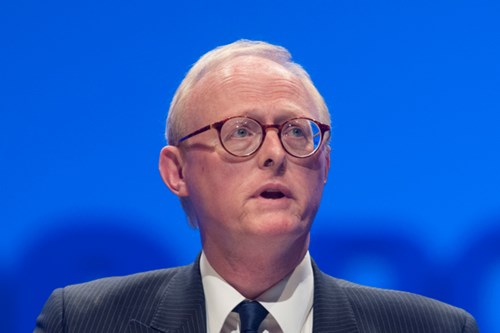HMICFRS report says chiefs are 'failing to plan' for demand
13 June 2018

Too often police leaders are relying on their frontline officers’ desire and dedication to get the job done – but that is hiding failings the latest HMICFRS report into policing has revealed.
Her Majesty’s Inspectorate of Constabulary and Fire and Rescue Services has accused chiefs of failing to deal with demand by not planning properly – a ‘disgraceful’ state of affairs according to the Police Federation of England and Wales.
The HMICFRS report also claimed ‘thousands’ of emergency calls are being held in queues, because there are not enough officers to respond to them.
This, coupled with a reliance on officers’ sense of duty and determination to get the work done, is impacting officer health says the PFEW.
“The report states that because frontline police officers and staff can be relied on to get the job done there is less pressure on leaders to bring about much-need change,” said PFEW Chairman Calum Mcleod.
“But to rely on frontline officers consistently working at a level which goes way beyond what it is expected of them is a disgraceful and unsustainable state of affairs.
“Chief Officer Teams and the Home Office must act on this report and the work we have done, and take immediate action to ease the huge burden faced by our members – their health and wellbeing is being seriously affected.”
The lack of planning, said HMICFRS Chief Inspector Sir Tom Winsor, has in some instances compromised public safety.
He told the Guardian; “Many of the points in this report are issues we have raised before and often. Increasingly these issues are becoming more and more urgent.
“The principal of these is the failure to plan properly, compromising public safety and relying on frontline officers’ desire to ‘get the job done’.”
It was this drive and determination by officers which was covering up the failings he added.
The report also highlighted concerns around the issue of child mental health and called on public bodies to work together to tackle problems early on before they escalate into criminality and ‘storing up problems for the police and the rest of society.’
Mr Macleod added: “The police service is too often seen as the service of last resort having to pick up the slack for other agencies.
“It was recognised just last week at the Home Select Committee debate on the ‘Future of Policing’ that an overwhelming amount of police time and resource is spent on dealing with vulnerable people.
“Whilst many forces work closely with local health services the Government needs to put more support and funding in place to alleviate the pressure on the police service so that officers can spend more time solving traditional crime rather than filling gaps for other overstretched services.”
Reform and change in how demand is handled needs to happen quicker the report also found, while upgrading the technology available to officers needs to be fast-tracked too.
“The scale of change has been too slow and too modest,” Sir Tom added.“There are no excuses for the shortcomings I routinely see which would not be acceptable in many other organisations.”
Despite the draconian cuts in funding and officer numbers and an increase in crime there was some good news.
“The inspections HMICFRS has carried out during the past year showed that the effectiveness and efficiency of the police service is, on the whole, improving against a backdrop of financial austerity and the rise of crime, especially complex crime.
“This is to the credit of those who were completing.”














